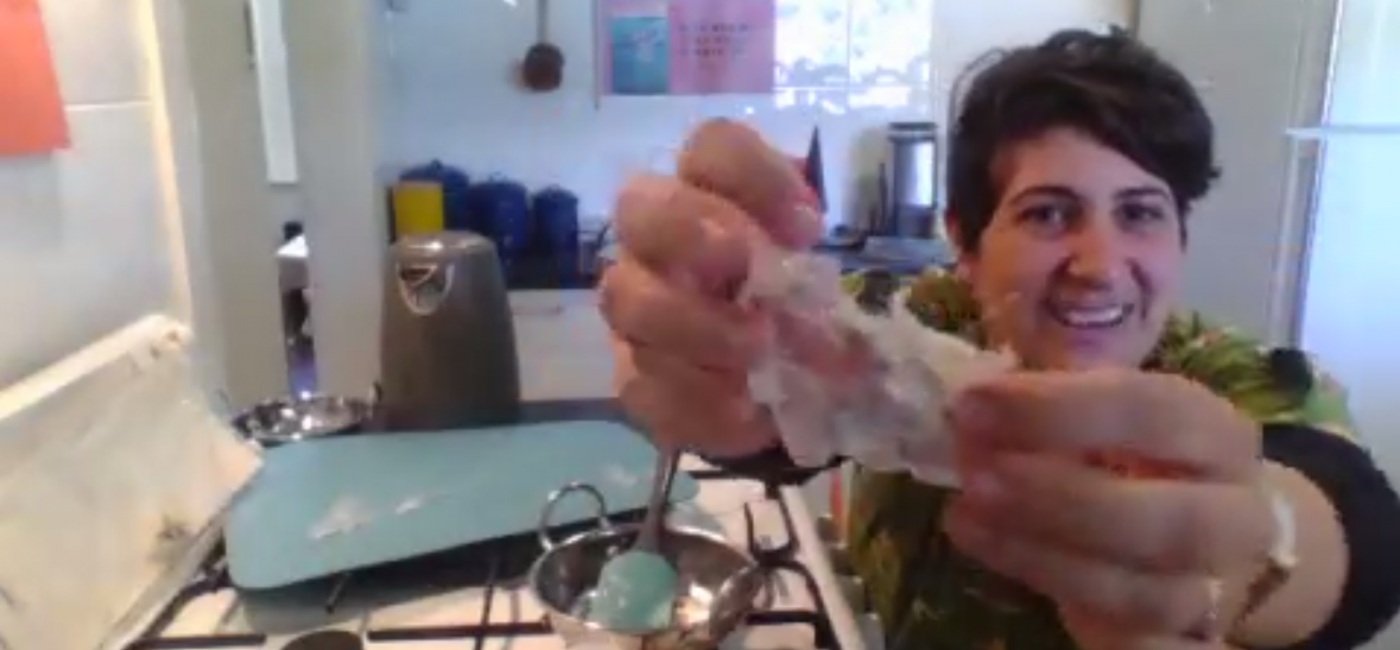
"Day 2 was an amazing experience. The critical thinking lecture, Questacon presentation, starch saves the world and CERN were amazing and fun-filled! I’m really looking forward to Day 3 and the rest of the NYSF!" – Darren, 2021 Participant
It was all about critical thinking, science experiments, and a virtual trip to Switzerland for day 2 of the 2021 NYSF Year 12 Program!
In the morning, students enjoyed a workshop on critical thinking delivered by either Dr Peter Ellerton from The University of Queensland or NYSF CEO Dr Melanie Bagg. Critical thinking is an essential skill in STEM studies and careers. These workshops provided participants with the tools to practise their critical thinking during the program and beyond.
Dr Ellerton provided a philosophical and psychological perspective on critical thinking and blew the participants' mind's by posing questions that demonstrated they don't have full control of their thinking and judgements.
"Usually thinking is not something we do, but something that happens to us," Dr Ellerton said.
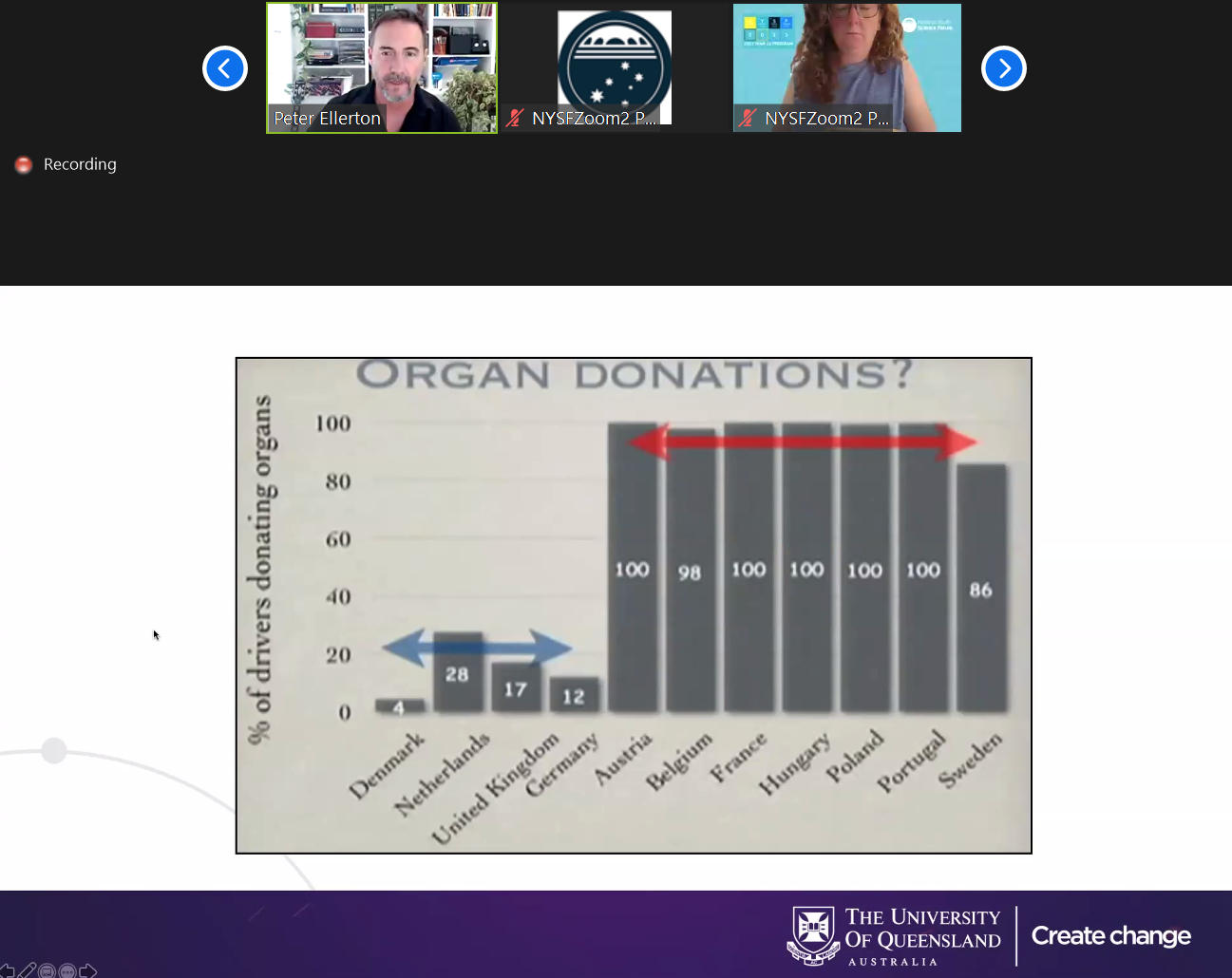
Dr Melanie Bagg's session focused on critical thinking in STEM and covered a range of topics from how the brain's underlying critical thinking processes operate, to how misinformation spreads through social media, and to her personal experience with fact-checking for media outlets and scientific papers, every facet of how 'fake news' is formed and spread was examined and eagerly studied by our participants.
"We all have inherent biases, our upbringing, our political beliefs, the way we've been schooled, but as scientists, we've been trained to look at data over all of that," Melanie said.
In both sessions, participants were taught to question their personal beliefs, and how in science, a mistake can always be an opportunity to discover something new.
In an NYSF program first, our 2021 cohort participated in two excellent Science@Home sessions performing experiments with everyday materials and learning more about the science behind them!
Patrick Helean and Michaela Ripper from Questacon challenged participants to first make their own Cartesian diver. Using a bottle of water, paper clips, and a straw, Patrick and Michaela demonstrated the principles of buoyancy and gas law. They also challenged students to think of how they would communicate this experiment to a broader audience considering the audience, the goal and the platform. Our enthusiastic students came up with a range of ideas from public demonstrations, exhibit designs, and Percy Jackson inspired storytelling, to even a musical!
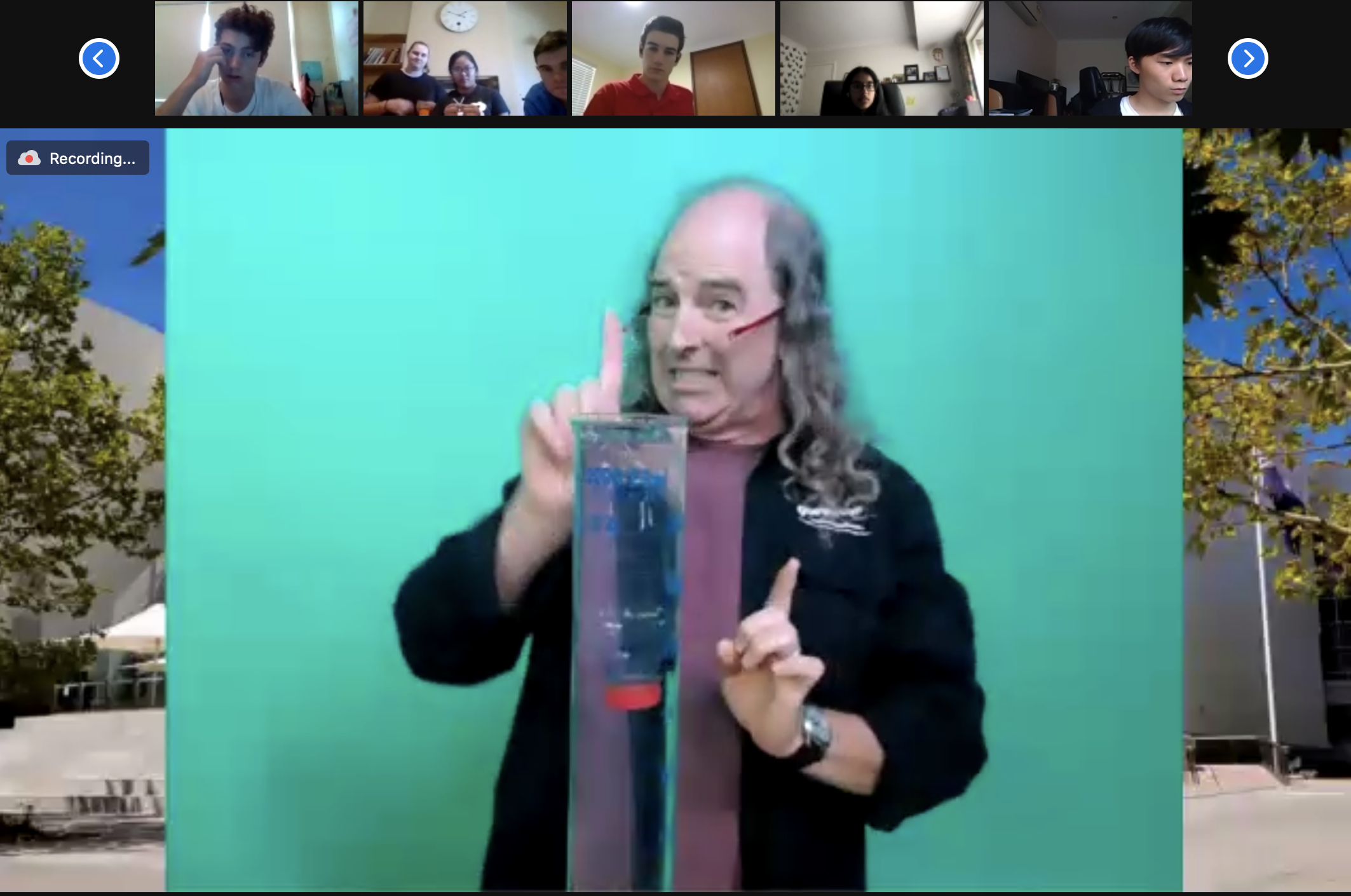
In the second half of the session, students chose between two experiments led by Sciren Director and Co-founder, Dr Bianca Warnock and Dr Deborah Devis.
Q. What is the difference between degradable, biodegradable and compostable plastics?
To explain this, Dr Warnock took the students through the science of everyday plastic and the science behind making plastic from food starch before students made their own bioplastic using a potato, vinegar and glycerol!
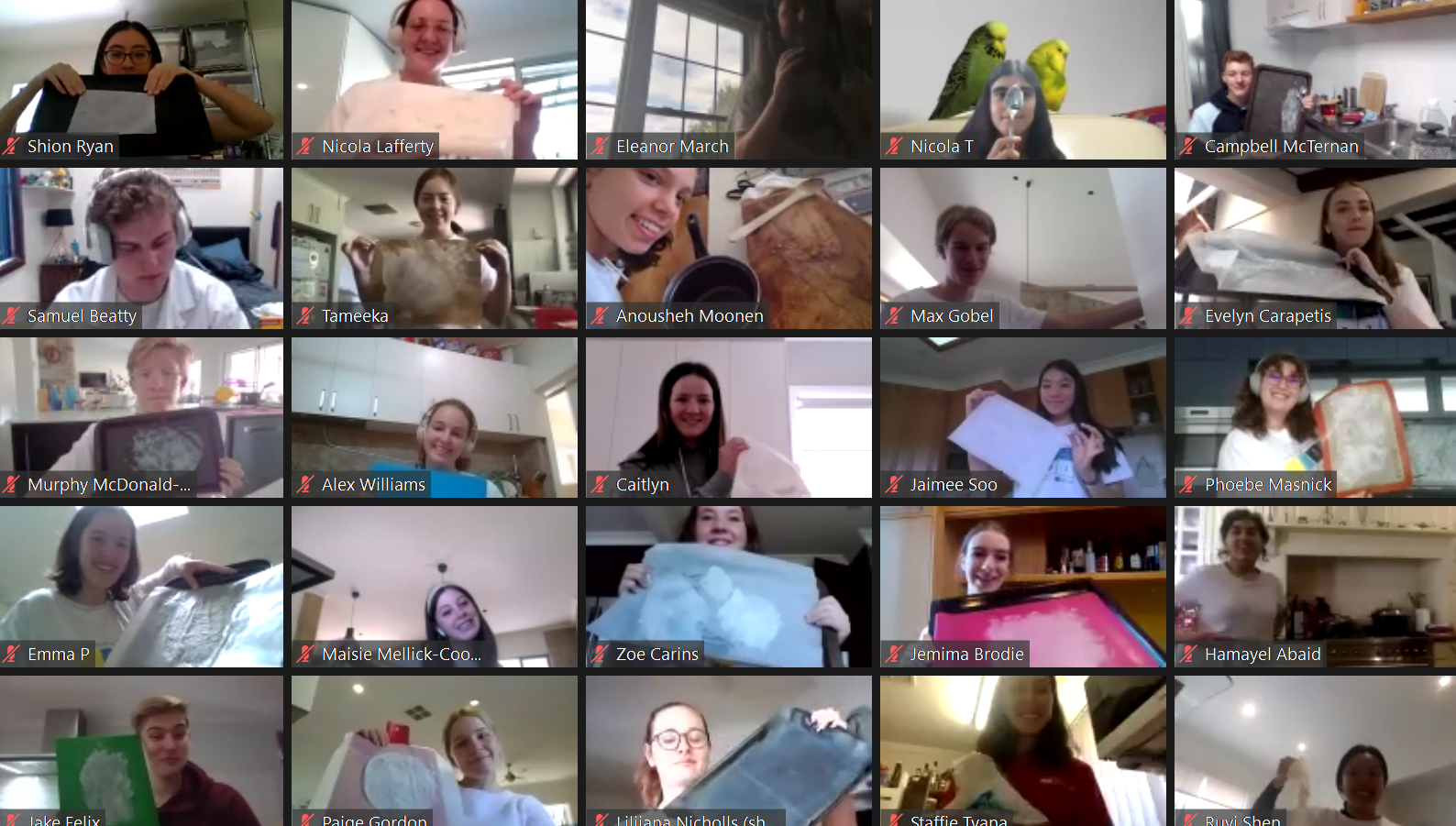
Over with Dr Devis, participants replicated a common lab experiment to extract DNA from strawberries, kiwi fruit and bananas with great success using a variety of household chemicals, including methylated spirits, dishwashing detergent, and a simple straining cloth. Participants learned about the cell's inner workings and its membrane and the various chemical processes required to extract the DNA.
"You just changed my career choice!" – Aparna, 2021 Participant, speaking about the DNA experiment
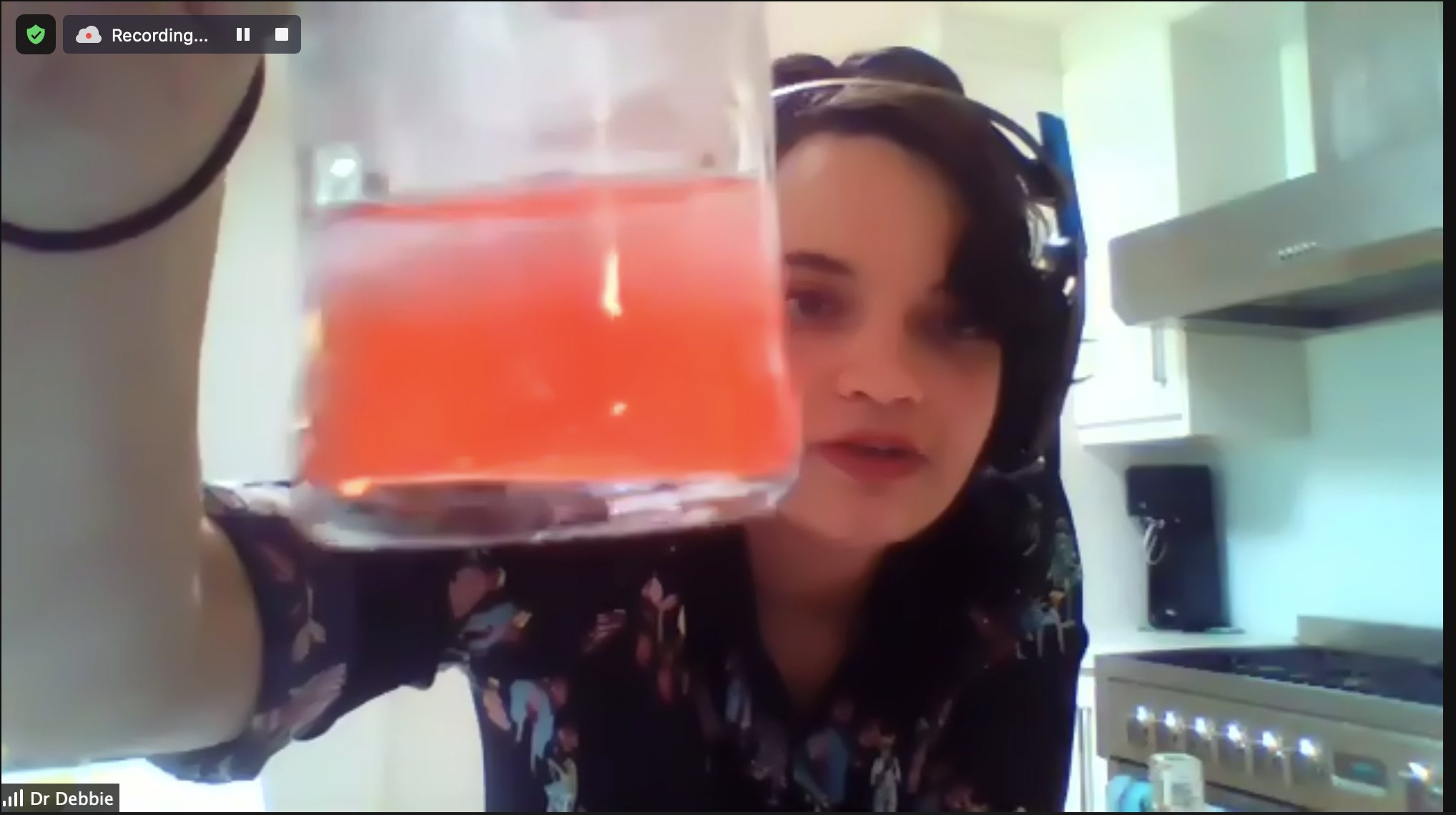
The day wasn't over yet! Participants jumped back onto zoom for the highly anticipated live-cross to CERN (The European Organization for Nuclear Research) in Switzerland. NYSF participants were able to view one of the world's largest and most respected centres for scientific research from 100m below the surface!
With the help of technology, Dr Steven Goldfarb provided a view inside an ATLAS Detector. The Inner Detector measures the direction, momentum, and charge of electrically-charged particles produced in each proton-proton collision.
Dr Goldfarb spoke of his love of physics and explained how he learns something new every day at CERN. Over 400 physics-loving students engaged in the Q&A session, with many of them wanting to know how to follow in Dr Goldfarb's footsteps.
"Study hard, keep loving physics and search for programs for students that allow you to learn from others, like CERN," - Dr Goldfarb
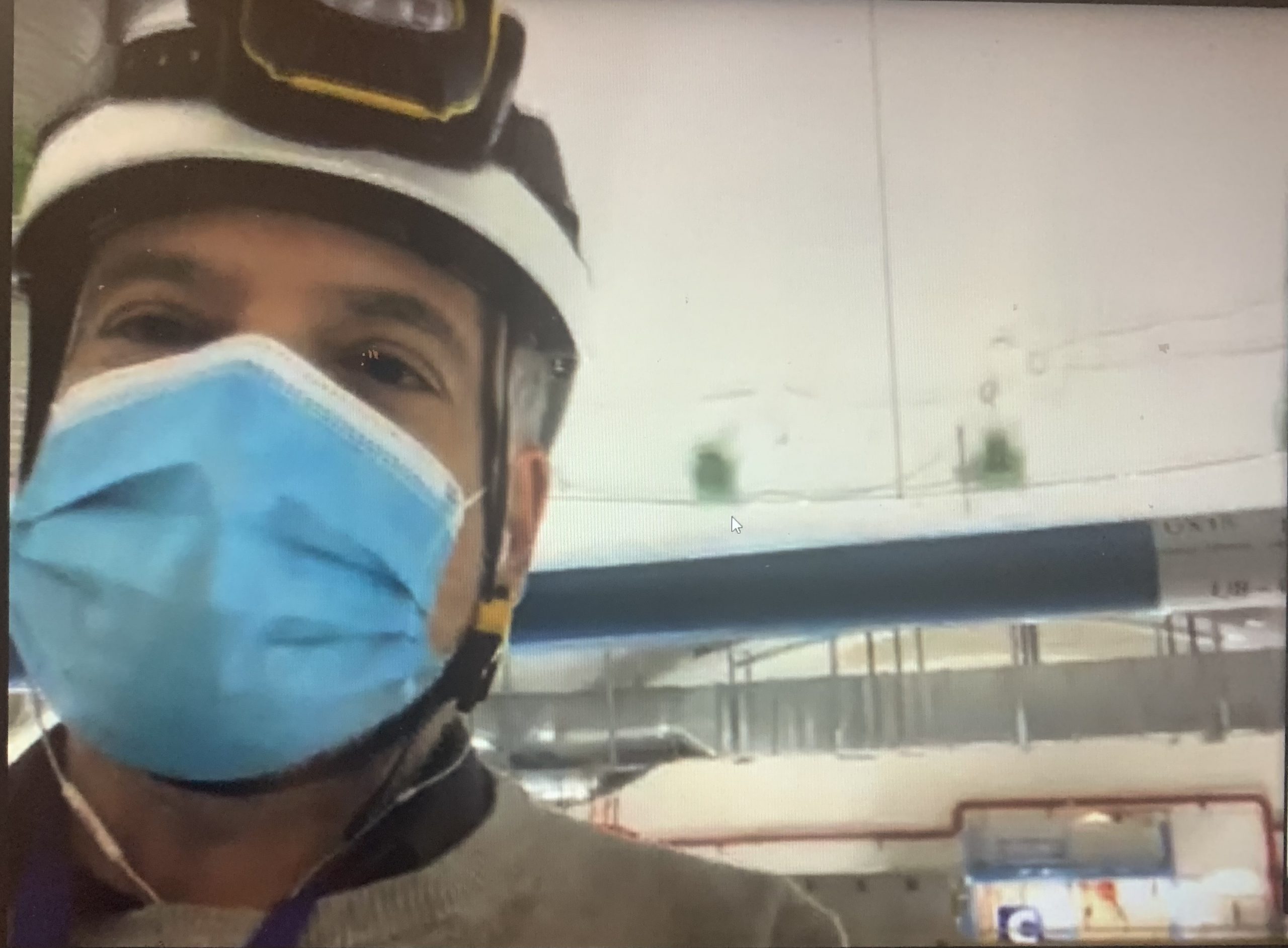
"Day 2 was an amazing experience. The critical thinking lecture, Questacon presentation, starch saves the world and CERN were amazing and fun-filled!! I’m really looking forward to Day 3 and the rest of the NYSF!!" – Darren, 2021 Participant
We want to thank all the speakers and hosts for making day 2 of the 2021 NYSF Year 12 Program a memorable one!